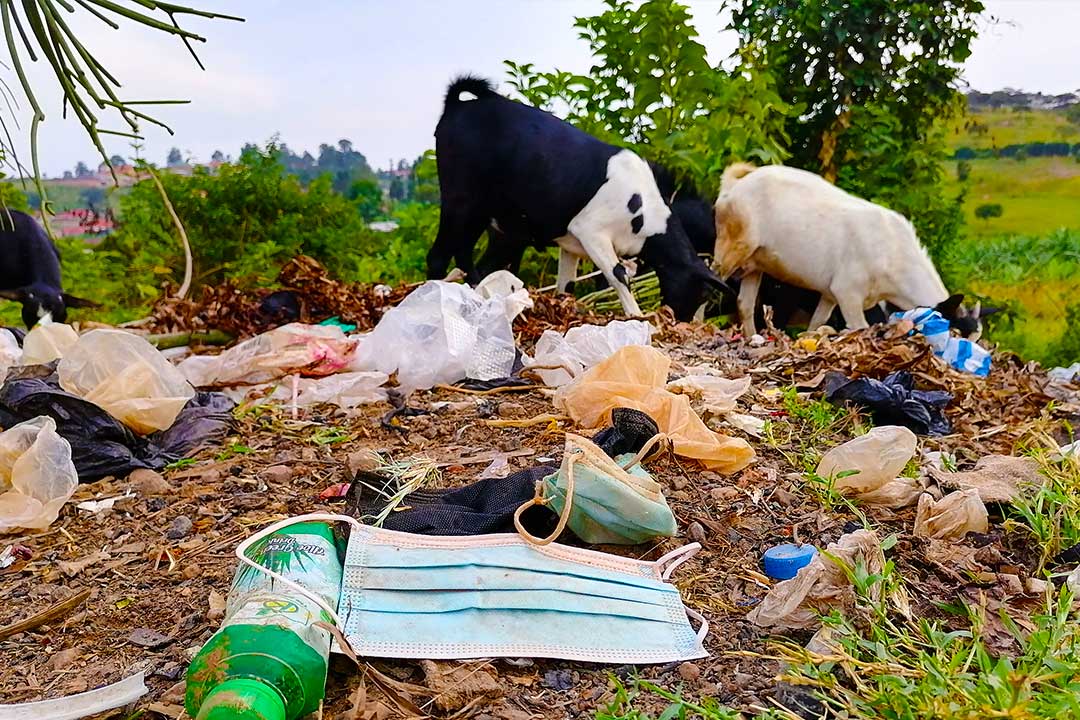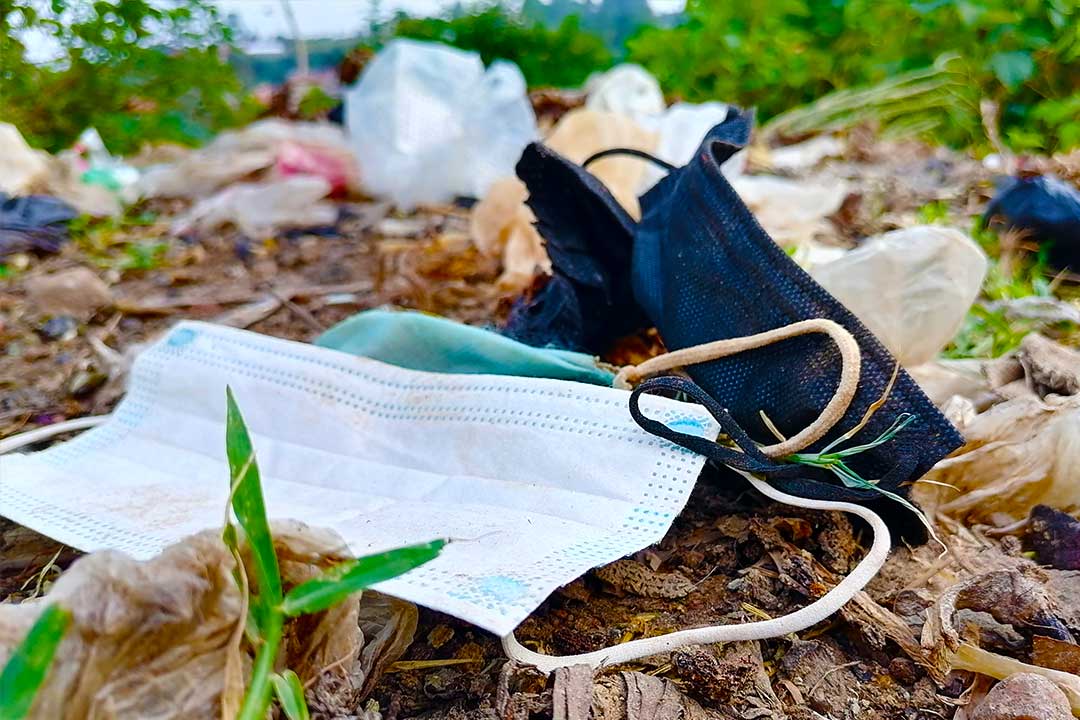Maybe it's rotting away in the distance, as fate would have it, dissolving into the earth's crust. Maybe it's being recycled in the city's dark alleys, rewashed with a light detergent to exchange hands (rather noses) at daybreak.
The truth is, you don't know where our last mask is unless it's one of those pretentious fashionable masks shipped here for the hippy class. Those who pepper their masks with cologne before they step out into the open world.
Since March 22, 2020, when Uganda confirmed her first COVID-19 case, we project that more than 1.75 billion face masks have been worn and discarded in Uganda alone if at least each of the 35 million Ugandans above the age of six wore an average of 50 masks over 731 days (two years).

Once upon a mask
In November 2019, the world woke up to shocking news of a certain virus discovered in Wuhan, Hubei, China. The virus, which was later known as coronavirus (COVID-19), would later spread like wildfire, one cough at a time.
On January 30 2020, still gasping for breath, the World Health Organization (WHO) would later declare a public health emergency of international concern. As we speak, the pandemic has caused more than 378 million cases and 5.67 million deaths globally.
To prevent this deadly pandemic, wearing masks was agreed upon as a critical preventive measure. Scientists, globally, argued that masks significantly reduce the spread of COVID-19.
The public partook in this new wave of mask-wearing. They were now a shield to their potentially virus-laden breath. Masks became the new normal as our way of life became abnormal.
Today, the tally of face masks globally is over 129 billion a month. This translates into about 3 million face masks used per minute. The statistics are shooting up by a day because of new variants cropping up at every sneeze.
A study reports that 3.4 billion face masks are discarded every day into the seas, the environment.
Masks as environmental pollutants
According to a study in Environmental Advances, a single face mask can release as many as 173,000 microfibers per day into the waters. Face masks are from multiple plastic fibres, primarily polypropylene, which will remain in the environment for decades.
Face masks, gloves and wipes aren't recyclable in most countries because they contain a mix of paper and polymers that can't be separated into pure streams of single materials for recycling; this poses a grave danger to humanity and water life.
Another pandemic is before us. The amount of plastic waste accumulating into our seas and land is forecast to triple in the next 20 years with no solution on the horizon. As occupants of this green earth, the onus remains on us to dispose of these plastics and PPEs and masks correctly. Throwing them unaware will eventually throw us off the face of the earth.
NTV Uganda last year reported that masks contain plastic elements which have horrific effects on the environment. In Kampala alone, 1,500 tonnes of waste are generated daily. Now, add masks to the equation, and the situation will get out of control soon.
What can be done?
Different stakeholders, government agencies and the public should join hands to curb this impending problem. The Last Drop Africa champions a mass sensitization about the proper disposal of masks and plastics in general. We believe that the public must be taught about the immense dangers these used masks (waste) might inflict on our environment.
As Dr. Mariam Mulungi, an epidemiologist at Kampala Capital City Authority (KCCA) noted, “There is a need for clear guidelines on how used masks can be disposed of.”
We welcome the partnership by NEMA, GIZ and Youth Go Green through which a special project has been hatched to train the youths in Kampala and Gulu Cities on the correct disposal of masks.
Elsewhere in the region, Kenya in 2020 adopted national guidelines on the management of COVID-19 waste. The Ministry of Health and their counterparts in the Environment trained over 200,000 youth and health workers on the disposal of surgical gloves, masks and condoms to avoid harming the environment.

